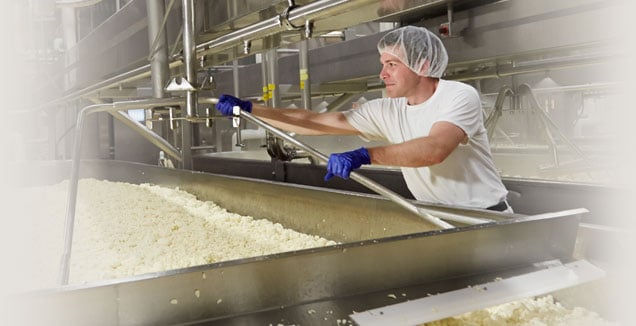Cheese Store Melbourne: Your Go-To Location for All Things Cheese
Cheese Store Melbourne: Your Go-To Location for All Things Cheese
Blog Article
Recognizing the Science Behind Cheese Manufacturing: From Milk Choice to End Product
The intricate procedure of cheese production starts with the careful choice of milk, an option that greatly impacts the final product's flavor and structure. Understanding the essential duty of microorganisms in fermentation reveals exactly how these microbes transform lactose into lactic acid, a vital active ingredient in establishing the cheese's character. cheese shop melbourne.
Milk Option Refine
The selection of milk is an important step in celebrity manufacturing procedure, as it directly affects the flavor, structure, and top quality of the last item. Numerous factors should be considered during this choice, consisting of the resource of the milk, the breed of the pets, and their diet regimen. Cow's milk, goat's milk, and sheep's milk each have distinct properties that add to the special features of various cheese selections.

Furthermore, the dietary content of the milk, affected by the animal's diet, can alter the cheese's final characteristics. Premium milk, sourced from healthy pets, makes certain a superior cheese product, stressing the value of rigorous high quality control procedures in the milk selection procedure. Hence, mindful consideration in milk option is crucial for successful cheese production.

Duty of Microorganisms in Fermentation
Following the mindful choice of milk, the fermentation process plays a crucial role in cheese manufacturing, where bacteria are presented to change the milk right into cheese. The main feature of these germs is to transform lactose, the sugar present in milk, into lactic acid. This acidification not just modifies the pH of the milk however likewise plays an essential duty in flavor advancement, structure, and conservation of the final item.
Lactic acid bacteria (LABORATORY), such as Lactococcus and Streptococcus varieties, are generally made use of in cheese production because of their capacity to grow in milk and their contribution to the fermentation procedure. The metabolic activities of these bacteria lead to the production of various metabolites, consisting of flavor substances and antimicrobial compounds, which inhibit putridity organisms and pathogenic microorganisms, consequently boosting cheese safety.
Moreover, the fermentation procedure affects the general characteristics of the cheese, including its scent, taste, and structure. Various stress of microorganisms can give distinct flavors and add to the special profiles of various cheese kinds. Thus, the selection of microbial societies is an essential action in attaining the wanted cheese quality and consistency.
Coagulation and Curd Formation
In the cheese production procedure, coagulation notes an important shift from fluid milk to strong curds. This process is usually matched by the acidic setting produced by lactic acid microorganisms, which better aids in coagulation by decreasing the pH of the milk.
The resulting curds are formed as the fluid whey starts to separate. Elements such as temperature, the amount of rennet used, and the time allowed for coagulation are vital in determining the texture and top quality of the curds. Higher temperatures and longer coagulation times commonly produce firmer curds, ideal for more difficult cheeses.
Once curds are created, they are reduced web link into smaller items, enabling whey to escape more successfully. This action is critical, as it influences the dampness content and general attributes of the final cheese item. Correct administration of coagulation and curd formation is crucial for accomplishing particular cheese styles and preferred taste profiles.
Aging and Flavor Advancement
After the curd has been developed and whey has been drained, the following stage in cheese production is maturing, likewise called maturation. This crucial process considerably affects celebrity's last taste, structure, and fragrance. During aging, different biochemical and microbiological improvements occur, influencing the overall sensory profile.
The aging setting, consisting of temperature level and moisture, plays an important duty in flavor growth. Enzymes and germs existing in the cheese promote the breakdown of proteins and fats right into smaller particles, leading to the development of amino acids, fats, and unstable substances. These changes contribute to the intricacy of taste and fragrance, with distinctive accounts arising based upon the specific cheese selection.
Additionally, the duration of aging is essential; much shorter aging periods typically generate milder flavors, while longer growth results in even more durable and nuanced accounts. Factors such as the milk resource, cheese kind, and details aging techniques additionally boost the diversity of flavors generated. Eventually, aging is a delicate balance of time, ecological conditions, and microbial task, culminating in the one-of-a-kind qualities that specify each cheese selection.
High Quality Control in Cheese Manufacturing
Ensuring high standards throughout celebrity production process is vital for providing a quality product that meets customer expectations - cheese factory melbourne. Quality assurance (QC) includes numerous stages, beginning with raw milk this page option to the final aging process. Each stage needs precise focus to information to prevent contamination and ensure consistency
During milk choice, manufacturers have to evaluate variables such as fat content, pH levels, and microbial top quality. Regular testing for somatic cell counts and microbial lots is crucial to make certain the milk's viability for cheese production. In the production stage, QC steps include keeping an eye on the temperature level, level of acidity, and rennet task, which substantially influence structure and flavor.
As cheese develops, continual sensory evaluations and laboratory analyses are carried out to evaluate flavor advancement, appearance, and overall quality. Any type of variances from established requirements require corrective actions to keep product stability.
Additionally, paperwork and traceability are crucial elements of effective quality assurance, making it possible for manufacturers to track the cheese from farm to customer. By executing durable QC procedures, cheese suppliers can not only improve item quality yet also build customer trust, ensuring their location in an open market.

Conclusion
Finally, the science of cheese manufacturing encompasses numerous crucial stages, each significantly influencing the end product. The mindful choice of milk, the important role of germs in fermentation, the change of fluid milk right into curds through coagulation, and the aging process jointly add to the growth of unique tastes and textures. In addition, rigorous high quality control determines make certain that each cheese variety fulfills official site well-known requirements, thereby enhancing customer fulfillment and preserving the stability of the cheese-making custom.
Report this page